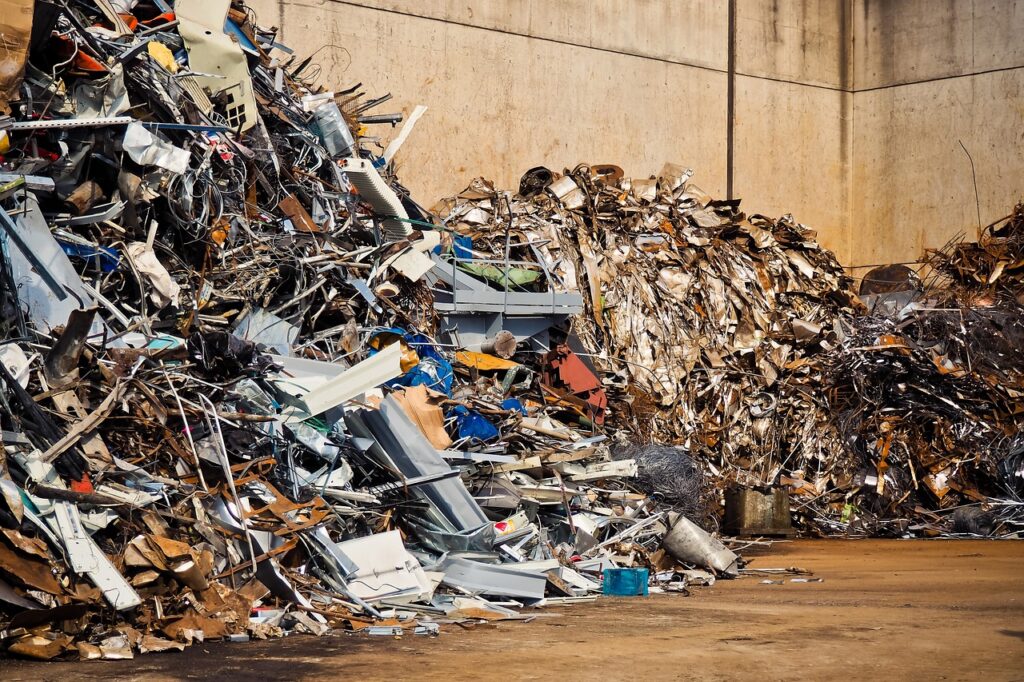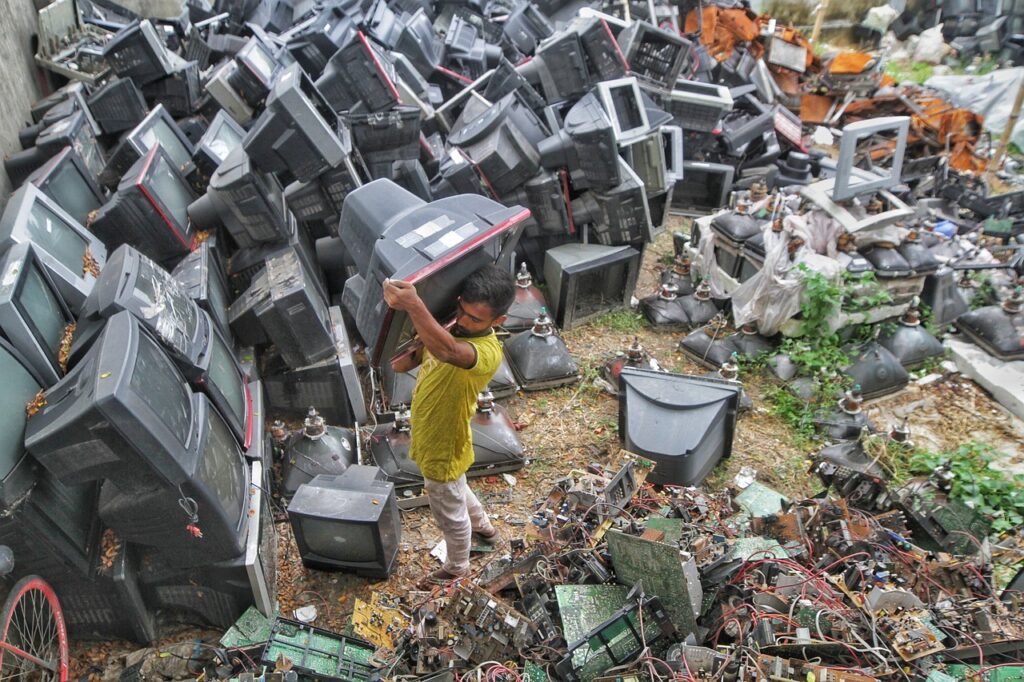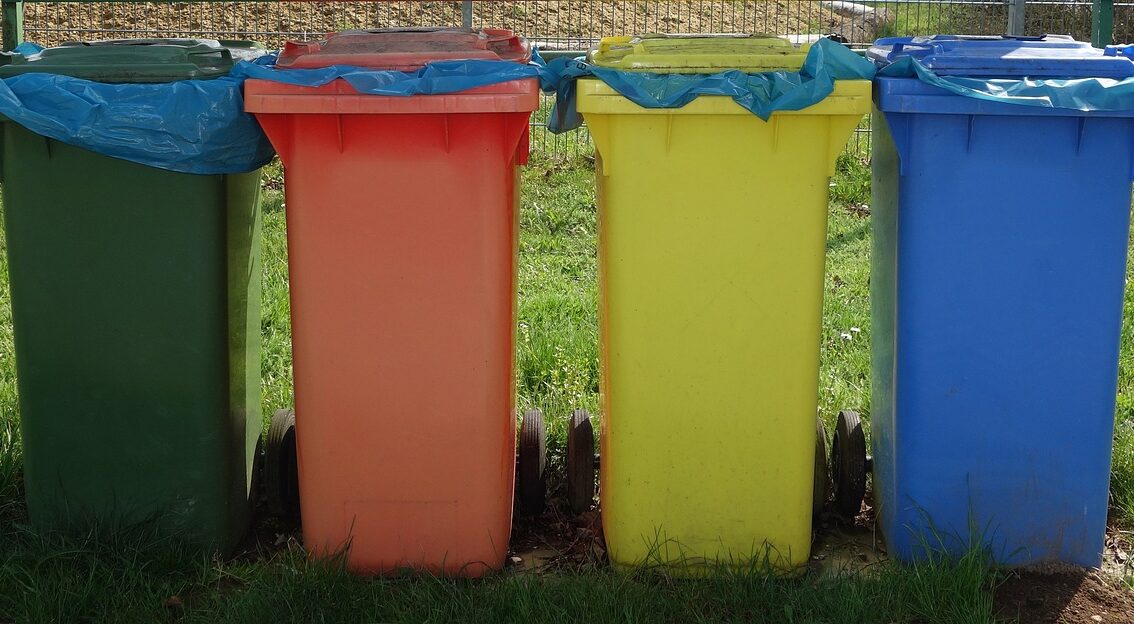
As technology continues to advance at a rapid pace, the amount of electronic waste (e-waste) generated worldwide is reaching alarming levels. From old smartphones to obsolete computers, e-waste contains valuable materials that can be recycled or reused. However, improper disposal can lead to environmental hazards and waste valuable resources. This guide will help you understand what e-waste is, why recycling it is essential, how to properly recycle your old electronics, and some well-known recycling companies.
What is E-Waste?
E-waste refers to discarded electrical or electronic devices that are no longer in use. Common examples include:
- Smartphones and tablets
- Computers and laptops
- Televisions and monitors
- Home appliances (e.g., microwaves, refrigerators)
- Printing equipment (printers, ink cartridges)
- Audio and video equipment (stereos, cameras)
Due to the complex materials used in these devices, improper disposal can pose significant risks to human health and the environment.

Why Is E-Waste Recycling Important?
Compliance with Regulations: Many regions have laws and regulations governing the disposal of e-waste. Proper recycling helps you comply with these regulations and avoid potential fines.
Environmental Protection: E-waste contains hazardous materials such as lead, mercury, and cadmium. If not disposed of correctly, these substances can leach into the soil and waterways, causing pollution and health risks.
Resource Conservation: Many devices contain precious metals like gold, silver, and copper. Recycling helps recover these materials, reducing the need for mining and extraction, which can be energy-intensive and harmful to the environment.
Economic Benefits: The recycling industry creates jobs and contributes to local economies. By recycling e-waste, you support businesses that help recover valuable materials and ensure that e-waste is handled correctly.
What to do Before Recycling your E-Waste
Before recycling your e-waste, take the following steps to ensure that it’s ready for the process:
- Backup Your Data: If you’re disposing of a computer or smartphone, ensure you back up essential data
- Wipe Your Devices: Perform a factory reset or use data-wiping software to erase personal information. This step is crucial to protect you privacy.
- Remove Accessories: Take out any batteries, chargers, or external devices from your e-waste, as these may require separate disposal.
- Inventory Your E-Waste: Keeping a detailed list of what you are recycling can help when finding a suitable recycling option.
Here’s our top pick From Junk to Useful: 7 Essential recycling techniques
How to Recycle Your E-Waste
- Find Local Recycling Programs: Many cities and towns offer electronic recycling programs. Check with your local waste management authority for designated drop-off locations or special e-waste collection events.
- Retailer Take-Back Programs: Many retailers, such as electronics stores and big-box chains, offer take-back programs where you can return old devices for recycling or responsible disposal. Some may even offer discounts on new purchases for returning old electronics.
- Manufacturer Recycling Programs: Many manufacturers have their own recycling initiatives. Brands like Apple and Dell may allow you to return your old products for refurbishment or recycling.
- Donation: If the electronics are still functional, consider donating them to schools, charities, or community organizations. Ensure that they are cleared of personal data before donating.
- Certified E-Waste Recyclers: Choose recyclers who are certified under established standards such as e-Stewards or R2 (Responsible Recycling). These certifications ensure that recyclers adhere to environmentally responsible practices.

Some E-Waste Recycling Companies
A lot of companies specialize in e-waste recycling. Here are some notable ones present in the United States, Canada, United Kingdom, Australia and Nigeria.
United States:
- Sims Lifecycle Services (SLS): Provides IT asset disposal and electronics recycling.
- ERI (Electronic Recyclers International): A leader in large-scale e-waste recycling.
- Best Buy: Offers free recycling for various electronics at retail stores.
Canada:
- Recycle My Electronics: A nationwide program offering drop-off locations across provinces.
- Greentec: Focuses on secure e-waste recycling for businesses and households.
- Quantum Lifecycle Partners: Specializes in sustainable IT asset management.
United Kingdom:
- Veolia: Handles e-waste recycling with an emphasis on material recovery.
- Cefas Environmental Services: Provides secure electronic disposal.
- Recycle IT 4 U: Specializes in IT equipment refurbishment and recycling.
Australia:
- TechCollect: Supported by major brands, it offers free recycling for TVs and computers.
- MRI E-cycle Solutions: Provides comprehensive e-waste recycling solutions.
- Ecoactiv: Helps households and businesses recycle unwanted electronics.
India:
- Attero Recycling: India’s largest e-waste recycler with advanced processing facilities.
- Ecoreco: Pioneers in safe and responsible e-waste management.
- Karo Sambhav: Builds partnerships to promote e-waste recycling across the country.
Nigeria:
- E-Terra Technologies: Focuses on eco-friendly disposal of electronics.
- Hinckley Recycling: Aims to recover valuable materials sustainably.
- Green Compass Recycling: Supports local e-waste collection and recycling efforts.
Conclusion
Recycling electronic waste is crucial for protecting our environment and conserving valuable resources. By understanding the importance of responsible disposal and taking the right steps to recycle your old electronics, you can contribute to a healthier planet while also gaining economic benefits. Participate in local recycling programs, take advantage of retailer initiatives, and help spread awareness about the significance of e-waste recycling. Together, let’s make e-waste recycling the norm and foster a sustainable future!
The next time you consider tossing an old gadget, remember: recycling it is a small step toward a big impact.
